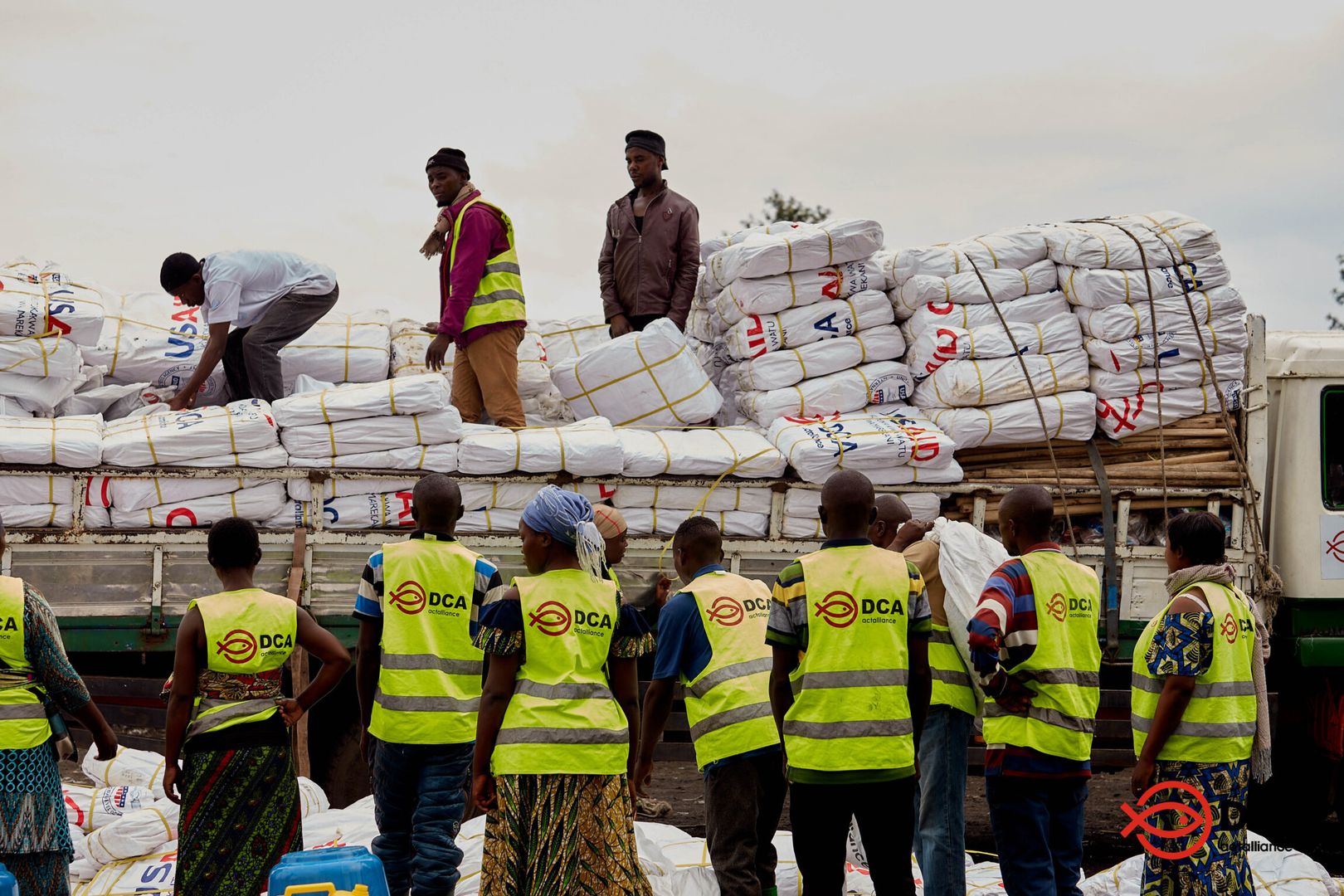In the Eastern part of the Democratic Republic of Congo (DRC), clashes between the Congolese army (FARDC) and its allies against the armed M23 (Mouvement du 23 mars) group common. Violence is meted out indiscriminately with devastating consequences for the civilian population.
According to the UN’s Office for the Coordination of Humanitarian Affairs (OCHA) over 9.6 million people were displaced in the DR Congo by the end of 2023, including 6.5 million internally displaced persons, 2.6 million returnees, and 527,000 refugees, making the displacement crisis in the country one of the largest in the world, second only to that of Sudan.
With the support and trust of USAID’s Bureau for Humanitarian Affairs (BHA), DCA is implementing the project “Integrated emergency assistance to improve living conditions of extreme hardship cases amongst the conflict-affected people in hard-to-reach areas of the Eastern DR Congo“.
From life on a farm to surviving in a camp
Since the end of 2023 and the intensification of fighting in the North Kivu province, the daily displacement of thousands of people living in the Masisi territory has become common. They flee the soldiers fighting and the violence that almost inevitably ensues. Most of the people living on the war-affected hills are small-scale herders and farmers.
Their hope lies a few days’ walk from the combat zones, at the gates of Goma, the capital of North Kivu, in the numerous camps for displaced persons surrounding the city. And this is where DCA meets them.
Inside Rusayo Camp
Between mid-March and end of April 2024, DCA distributed shelter and essential household items kits to 2,743 households, over half of which are led by women, totalling more than 16,868 individuals in Rusayo 1 camp.
Shelter kits include the necessary for emergency shelters, such as plastic sheeting, nails, spade, rope and so on. The essential household items contain basins, kitchen utensils and jerrycans, soap, blankets for example.

A Shelter Kit contains:
Polypropylene bag, 90 kgs capacity, size 74 1x 16 cm
Plastic sheeting 4 X5 M
Nails size 10 cm
Nails size 8 cm
Nails size 4 cm
Hammer with handle (500g)
Synthetic fibre rope, diameter 4.55 mm, 100 m roll
A mat
A spade with handle
These households are the most vulnerable as they have arrived within the last six months. They are at increased risk of assault and sexual violence or disease because they lack shelter and often sleep under the open sky in the camp. During the night, temperatures can drop very quickly and this region is marked by heavy seasonal rainfall.
Shelter assistance is essential for household survival and consists of in-kind distribution of tarpaulins, ropes, nails, a shovel with a handle, hammers, and household labor, which is the household’s contribution.
Daily laborers are sometimes identified to build shelters for the most vulnerable households with specific needs. This assistance is coupled with distribution of kits that contain soap, basins, pots, blankets, and kitchen utensils. This dual assistance provides rapid emergency aid to households facing poor living conditions.





DanChurchAid (DCA) has been working in the DR Congo since 2004 to assist people affected by conflict, displaced, and finding themselves in a vulnerable situation.

